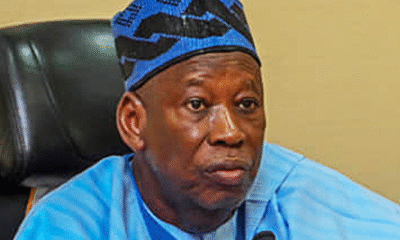Achiever's Profile
Mentoring: Three lessons from my journey

A few months ago, I got a message from Fatima, a young journalist in Abuja, who had been following me on X. She reached out, asking if I could mentor her. Fatima had just secured a internship gig at a local news organisation, but three months in, she still hadn’t found her feet.
The problem? There was no real mentorship structure in place, and most senior journalists were too busy focusing on their own work.
Fatima felt lost, unsure of herself, and questioning her decision to pursue journalism. So, we started having regular WhatsApp chats, discussing her challenges, and after six weeks, she started gaining confidence and finding her voice.
This experience made me realise how crucial mentorship is in journalism. It’s not just about technical skills like writing or reporting. It’s about guidance, encouragement, and providing support.
Here are three key lessons I’ve learned about mentoring young journalists like Fatima:
1. Create a safe space for open conversations
One of the most important things I did for Fatima was simply listen. She needed someone who understood her challenges, someone she could speak to without fear of judgement. It’s easy to feel like you must have it all figured out, but the truth is, we’re all constantly learning.
Mentors need to create a space where young journalists feel safe to share their struggles, whether it’s writing challenges or feeling unsure in the newsroom. Sometimes, just listening and offering reassurance can make all the difference.
2. Give practical, actionable feedback
When reviewing Fatima’s work, I didn’t just give vague praise or criticism. I gave detailed, actionable feedback—specific suggestions on what could be improved, whether it was tightening her lead or structuring her story better.
It’s not just about pointing out mistakes but showing them how to improve. And always recognise their progress—it boosts their confidence.
3. Encourage initiative and small wins
Fatima was initially hesitant to pitch her ideas, unsure if they were good enough. I encouraged her to start small, like pitching one new story idea a week. Over time, those small wins built her confidence and she became more comfortable pitching.
You see, mentorship isn’t about spoon-feeding; it’s about helping your mentees take initiative. Setting small, achievable goals can motivate them to push forward and trust their instincts.
The ripple effect
What I’ve come to realise is that mentorship is a two-way street. While I was helping Fatima, she was also pushing me to be a better journalist.
Truth is, you don’t need to be perfect to mentor someone. All you need is a willingness to share your experiences—both the highs and the lows. While I was helping Fatima, I found myself growing too.
Ever thought about mentoring someone? Start with a conversation. You never know the impact you could have, not just on their career, but on their confidence and outlook on life.
#Mentorship #JournalismDevelopment #NeverSettle
-

 Crime and Law2 days ago
Crime and Law2 days agoBreaking: VeryDarkMan regains freedom
-

 National News2 days ago
National News2 days agoIGP inspects police security tech facilities
-

 Metro News2 days ago
Metro News2 days agoALGON chairman slumps during meeting in Lagos
-

 Politics2 days ago
Politics2 days agoAPC is ready to welcome Kwankwaso – Ganduje
-

 Politics2 days ago
Politics2 days agoSenate gets new lineup as Akpabio reshuffles leadership
-

 Health2 days ago
Health2 days agoOver 1,200 applicants screened for positions in Edo hospitals
-

 Crime and Law2 days ago
Crime and Law2 days agoTerrorism: Buni calls for enhanced land, air synergy against Boko Haram
-

 Crime and Law1 day ago
Crime and Law1 day agoVeryDarkMan breaks silence after release































